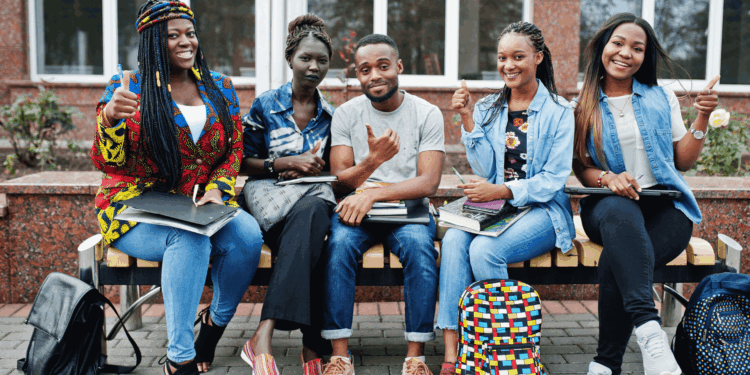Often, when one reads an article about localization, they will likely find that most focus on the same concept: adapting products and services to attract clients in a particular market. While this is an essential aspect of localization, this article takes a different approach. Instead of discussing localization purely from a business perspective, we will explore how migration and the African diaspora have influenced localization on the continent. The African Union defines the African Diaspora as “consisting of people of African origin living outside the continent, irrespective of their citizenship and nationality and who are willing to contribute to the development of the continent…”
With that being said, the African diaspora, according to the World Economic Forum, consists of more than two hundred million individuals, of which twenty-five percent will make up the global population.. As these communities establish themselves in various parts of the world, localization, the adaptation of cultural, linguistic, and economic practices to new environments, becomes essential. African localization in the diaspora plays a significant role in maintaining cultural identity, encouraging economic empowerment, and ensuring that African languages and traditions thrive across generations. This article explores the dynamics of localization in the African diaspora, the challenges faced, and the opportunities it presents.
Understanding localization in the Diaspora
Localization in the diaspora refers to the adaptation and integration of African cultural elements into foreign societies while ensuring that these traditions remain relevant and accessible. This includes language preservation, cultural integration, economic localization, and technological advancements. Language preservation ensures that African languages continue to be spoken and taught among diaspora communities. Cultural integration involves adapting African customs, food, music, and festivals to new environments while maintaining authenticity. Economic localization includes the establishment of African-owned businesses and enterprises catering to diaspora communities. Additionally, technology and media play a crucial role in connecting, educating, and promoting African culture and languages worldwide. The use of African language resources, whether through community centers, digital platforms, or cultural organizations, is a significant way these languages survive and evolve.
From the above bar graph, we note the following:
-
Language Preservation is vital for keeping African identities and traditions alive. This is typically seen as one of the most important aspects of diaspora culture.
-
Cultural Integration plays a significant role in how African customs evolve in new environments while retaining their roots. This often stands as a dominant factor.
-
Economic localization focuses on sustaining African businesses and services that support the community, though this might be slightly less emphasized compared to language and culture.
-
Technological Advancements facilitate the global spread of African culture through media, tech companies, and social platforms. It has a vital role in promoting African language and culture, making it almost equally as important as language preservation.
The Role of localization in the African Diaspora
Language and identity preservation are undoubtedly fundamental aspects of localization. Many African diaspora communities struggle with language retention due to assimilation pressures. Localization efforts include teaching native languages through community centers, online courses, and cultural institutions, encouraging bilingualism in households, and developing media content in African languages, such as films, television programs, and books. This mirrors the work of initiatives like the African Diaspora Literature Project, which curates African voices in diaspora literature. The preservation of African languages in the diaspora serves as a direct line to cultural roots.African culture is vibrant and adaptable. In the diaspora, cultural localization occurs through various means. African music genres like Afrobeats, Amapiano, and Highlife have gained international recognition, influencing the global music scene. The success of African music is not merely due to its popularity but because of its deep roots in the African diaspora’s experience. African cuisine has also found a place in foreign markets, with restaurants, food festivals, and online food delivery services ensuring the continuity of traditional diets. Similarly, African fashion and art have significantly impacted global trends, with designers incorporating African patterns, fabrics, and craftsmanship into mainstream fashion. African festivals, such as the Afro-Caribbean Festivals and Pan-African conferences, have become critical in preserving and promoting African traditions and helping the diaspora stay connected to the continent.
Economic empowerment is another vital aspect of localization in the African diaspora. Diaspora entrepreneurship is on the rise, with African entrepreneurs creating businesses tailored to their communities, such as Afrocentric fashion brands, restaurants, and beauty products. Many businesses in the diaspora also adapt their products to fit local consumer habits while maintaining African authenticity, ensuring they remain relevant in foreign markets. In a significant way, the African diaspora has become an economic bridge, as remittances and investments sent to Africa directly contribute to the continent’s economic growth. Technology plays a crucial role in keeping African diaspora communities connected. Social media platforms such as YouTube, TikTok, and Instagram have become powerful tools for showcasing African culture globally. These platforms, along with online learning, have enabled the younger generations of the diaspora to reconnect with their African heritage. E-commerce and digital services have enabled African-owned digital marketplaces to cater to diaspora communities, promoting local products and services while encouraging economic growth. The technological connection between Africa and the diaspora also creates opportunities for virtual Pan-African initiatives,
Challenges of localization in the African Diaspora
Despite the successes, African localization in the diaspora faces several challenges. One of the major challenges is cultural dilution, where the younger generation may lose touch with African traditions due to assimilation pressures. Cultural misrepresentation is also a concern, with African traditions sometimes commercialized without proper acknowledgment, leading to misconceptions and stereotypes. Additionally, many diaspora communities lack structured support for cultural preservation, making it difficult to pass down traditions. Economic barriers also present a significant challenge, as African businesses in foreign countries often struggle with funding, market access, and regulatory hurdles. Opportunities and the Future of localization in the Diaspora
Looking ahead, African localization in the diaspora presents exciting opportunities. Strengthening community networks can help build stronger ties among African communities through cultural organizations, events, and educational programs. Leveraging digital innovation will enable more widespread cultural education and promotion, allowing African traditions to thrive in the digital age. Additionally, encouraging engagement between the diaspora and Africa can enhance trade, tourism, and cultural exchange, benefiting both parties. Governments and policymakers can also play a crucial role by implementing policies that support African cultural preservation in diaspora communities. These opportunities are key for maintaining a vibrant and authentic connection between Africa and its diaspora.
African localization in the diaspora is a powerful tool for cultural preservation, economic empowerment, and global influence. By embracing language, culture, entrepreneurship, and digital innovation, the African diaspora can maintain strong connections to its roots while thriving in new environments. As localization efforts continue to grow, African communities worldwide will play a crucial role in shaping multicultural societies and bridging the gap between Africa and the rest of the world. This cultural preservation and empowerment can ensure that the African diaspora continues to be a powerful force in the global landscape.
As per the African Union’s definition of the African diaspora, people of African origin living outside the continent and committed to its advancement, it becomes clear that localization must be viewed as a vital cultural and political act. With over 200 million Africans in the diaspora, making up 25% of the global population, the scale and impact of this community cannot be overstated. Localization, then, is not just about fitting in; it is about holding on, preserving languages, customs, and ways of being that continue to anchor African identities in foreign landscapes. It is about resisting erasure and insisting on visibility, relevance, and power in a global system that too often demands assimilation over authenticity.









